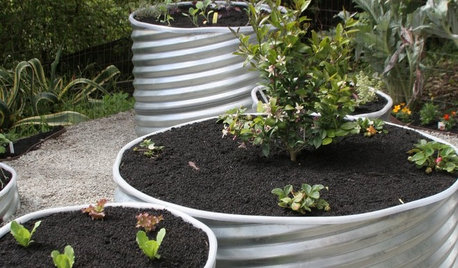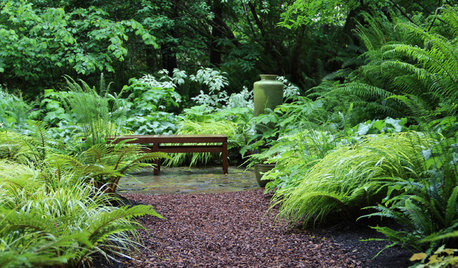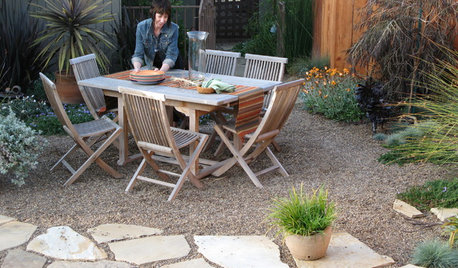Organic (animal-free) Container Soil
phoam
16 years ago
Related Stories

CONTAINER GARDENSContainer Gardening Basics: The Dirt on Soil
Learn the types of potting soil available and the best mixes to help your containers thrive
Full Story
GARDENING GUIDESThe Poop Scoop: Enrich Your Soil With Good Old Manure
Get over the ick factor already — this natural super-ingredient for soil has so many benefits, you'll wonder why you ever went chemical
Full Story
GARDENING GUIDESHouzz TV: Make a Worm Bin for Rich Soil and Happy Plants
A worm-powered compost bin that can fit under a sink turns food scraps into a powerful amendment for your garden. Here’s how to make one
Full Story
GARDENING GUIDESGet on a Composting Kick (Hello, Free Fertilizer!)
Quit shelling out for pricey substitutes that aren’t even as good. Here’s how to give your soil the best while lightening your trash load
Full Story
FARM YOUR YARDHow to Get Good Soil for Your Edible Garden
The nutrients in your soil feed the plants that feed you. Here are tips on getting it right — just in time for planting season
Full Story
GARDENING GUIDESHow to Pick a Mulch — and Why Your Soil Wants It
There's more to topdressing than shredded wood. Learn about mulch types, costs and design considerations here
Full Story
GARDENING GUIDESHow to Stop Worrying and Start Loving Clay Soil
Clay has many more benefits than you might imagine
Full Story
GARDENING GUIDES10 Solutions for Soggy Soil
If a too-wet garden is raining on your parade, try these water-loving plants and other ideas for handling all of that H2O
Full Story
LANDSCAPE DESIGN15 Great Ideas for a Lawn-Free Yard
End the turf war for good with hardscaping, native grasses and ground covers that save water and are easier to maintain
Full Story
HEALTHY HOMESleep Happier and Healthier in a Toxin-Free Bedroom
Light pollution, toxic bedding, wallpaper that off-gases ... if you're not getting good sleep, these bedroom blights might be to blame
Full Story







mulberryknob
dchall_san_antonio
Related Professionals
Camas Landscape Architects & Landscape Designers · Cottonwood Landscape Architects & Landscape Designers · Ashburn Landscape Contractors · Centereach Landscape Contractors · Eagle Landscape Contractors · Glendale Heights Landscape Contractors · Lebanon Landscape Contractors · Mount Kisco Landscape Contractors · Royal Oak Landscape Contractors · Secaucus Landscape Contractors · Soddy Daisy Landscape Contractors · Vashon Landscape Contractors · Welby Landscape Contractors · Lansdale Decks, Patios & Outdoor Enclosures · Statesville Decks, Patios & Outdoor EnclosuresphoamOriginal Author
marshallz10
skagit_goat_man_
dchall_san_antonio
Kimmsr
phoamOriginal Author
marshallz10
Kimmsr
woodyguthriefan
mulberryknob
dorisl
maupin
crankyoldman
rhizo_1 (North AL) zone 7
rootdoctor